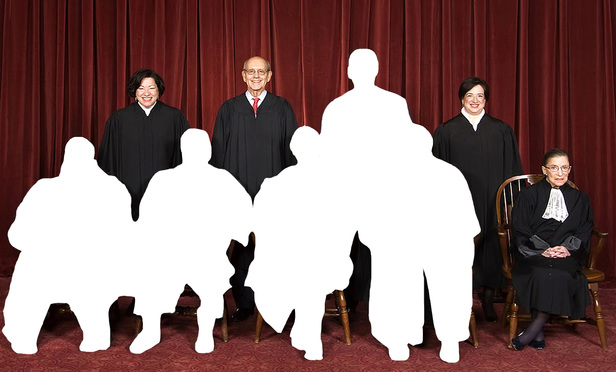In today’s orders, there was a unique entry under the case of Missud v. Court of Appeals of California (15-5601):
Because the Court lacks a quorum, 28 U. S. C. § 1, and since the only qualified Justices are of the opinion that the case cannot be heard and determined at the next Term of the Court, the judgment is affirmed under 28 U. S. C. § 2109, which provides that under these circumstances “the court shall enter its order affirming the judgment of the court from which the case was brought for review with the same effect as upon affirmance by an equally divided court.” The Chief Justice, Justice Scalia, Justice Kennedy, Justice Thomas and Justice Alito took no part in the consideration or decision of this petition.
28 U.S.C. 1 provides:
The Supreme Court of the United States shall consist of a Chief Justice of the United States and eight associate justices, any six of whom shall constitute a quorum.
I was not able to find the cert petition (please send if you have it!), but presumably the Chief, as well as Justice Scalia, Kenendy, Thomas, and Alito were joined in the action. Therefore they had to recuse.
How common is this? A quick search shows 11 such entries since the Court started to record the dockets in 2008. I previously blogged about the case of Johnson v. Obama in 2011, where the petitioner named virtually everyone in the United States government–including 8 Justices–with the exception of newly-confirmed Justice Kagan.
Update: Tony Mauro found the petition.
An anger-filled petition to the U.S. Supreme Court prompted five justices to recuse themselves Tuesday, raising the knotty question of what happens to a case before the high court when it lacks a quorum.
Disbarred intellectual property lawyer Patrick Missud, who has been litigating a dispute with a Nevada home builder for a decade, asked the justices to review his case, but predicted that Chief Justice “Johnny Robert$,” as he called him, “won’t even docket this writ.” Missud went on to call Roberts a traitor.
Missud named numerous lower court judges as defendants in his petition to the court, including most of the members the U.S. Court of Appeals for the Ninth Circuit, as well as Chief Justice John Roberts Jr. and Justices Clarence Thomas, Antonin Scalia, Anthony Kennedy and Samuel Alito Jr.
Here is the key footnote four (no not that one):
4 It won’t happen. Chances are that Johnny Robert$ won’t even docket this Writ like that of S222905 because it was also criminally-proven when filed. That’s why duplicate copies of this Writ of S226199 were concurrently sent to the DOJ’s Criminal Division. That way, when SCOTUS denies the docketing of this Writ, it will corroborate that John Robert$ is a traitor deserving of the death penalty.
Also, in what must be a liberal fantasy, the NLJ’s graphic reduces the Court to four: Ginsburg, Breyer, Sotomayor, and Kagan.

United States Supreme Court justices in 2010. Top row (left to right): Associate Justice Sonia Sotomayor, Associate Justice Stephen G. Breyer, Associate Justice Samuel A. Alito, and Associate Justice Elena Kagan. Bottom row (left to right): Associate Justice Clarence Thomas, Associate Justice Antonin Scalia, Chief Justice John G. Roberts, Associate Justice Anthony Kennedy, and Associate Justice Ruth Bader Ginsburg. October 8, 2010. Photo: Steve Petteway/Collection of the Supreme Court of the United States via Wikipedia.